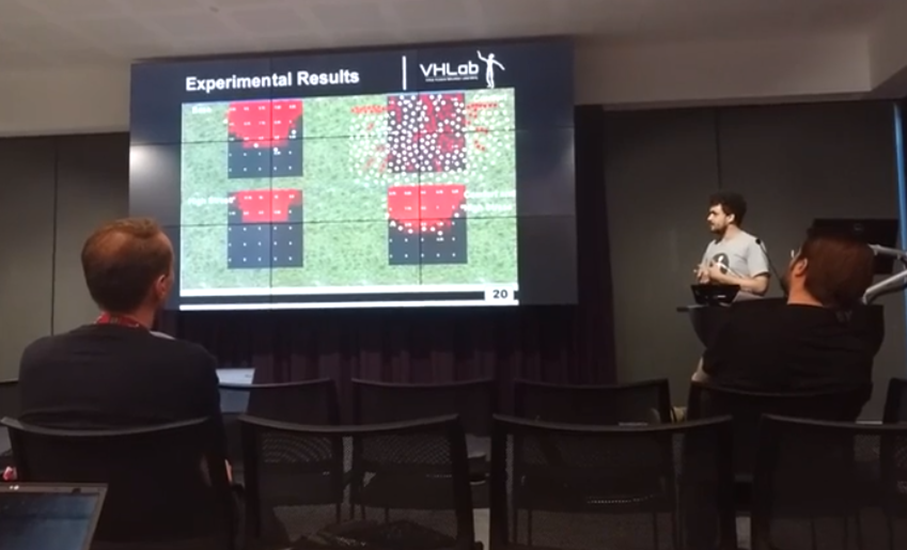Projects developed at the Virtual Human Laboratory simulate crowds in different situations

Gabriel Rockenbach presented the paper Simulating Crowd Evacuation: from Comfort to Panic Situations
PhD student in the Computer Science program, Paulo Knob, and students Gabriel Wetzel Rockenbach, Diogo Schaffer and Guilherme Maurer, from the School of Technology, took part in the 18th ACM International Conference on Intelligent Virtual Agents, at Western Sydney University (Australia), from Nov 5 – 8. They were the only Brazilians at the event and presented papers on crowd simulation in several situations, such as hospital evacuation and population density stress.
The research is carried out at the Virtual Human Laboratory, under the supervision of professor Soraia Musse. As the papers were accepted, the laboratory and the institution joined efforts to send them to Sidney. Two tickets were paid with funds from the laboratory and, the other two tickets were paid by the students’ families.
Psychological traits in group behavior
Knob presented the article Simulating Crowds with OCEAN Personality Traits, which was influenced by his Master’s dissertation, defended earlier this year. He employed a personality model that is used in psychology (OCEAN, also known as Big Five) and included psychological traits in the agents of the crowd simulation model (BioCrowds), designed for the doctoral dissertation of Alessandro Bicho, completed at Unicamp, under the supervision of Soraia Musse.
The psychological traits in the agents of one group were mapped out. These traits have an influence on their behaviors. “We were able to compare the behaviors when we saw the OCEAN of the agents, as well as the difference from the original BioCrowds model.” The article was written by Knob in collaboration with Soraia Musse and Márcio Balotin, a Computer Science alumnus of PUCRS. For Knob, taking part in the event has been such an interesting experience. “That was my first time in an international conference. We met people from all over the world who do research in this area and we were able to expand our network”, says he.
Two other papers were presented: Simulating Crowd Evacuation: From Comfort to Panic Situations, by Soraia, in collaboration with undergraduate students Gabriel Rockenbach, Diogo Schaffer, Conrado Boeira and André Antonitsch, and Simulating the Evacuation of Virtual Humans Crowds in Facilities, which featured the same collaborators plus Guilherme Maurer.